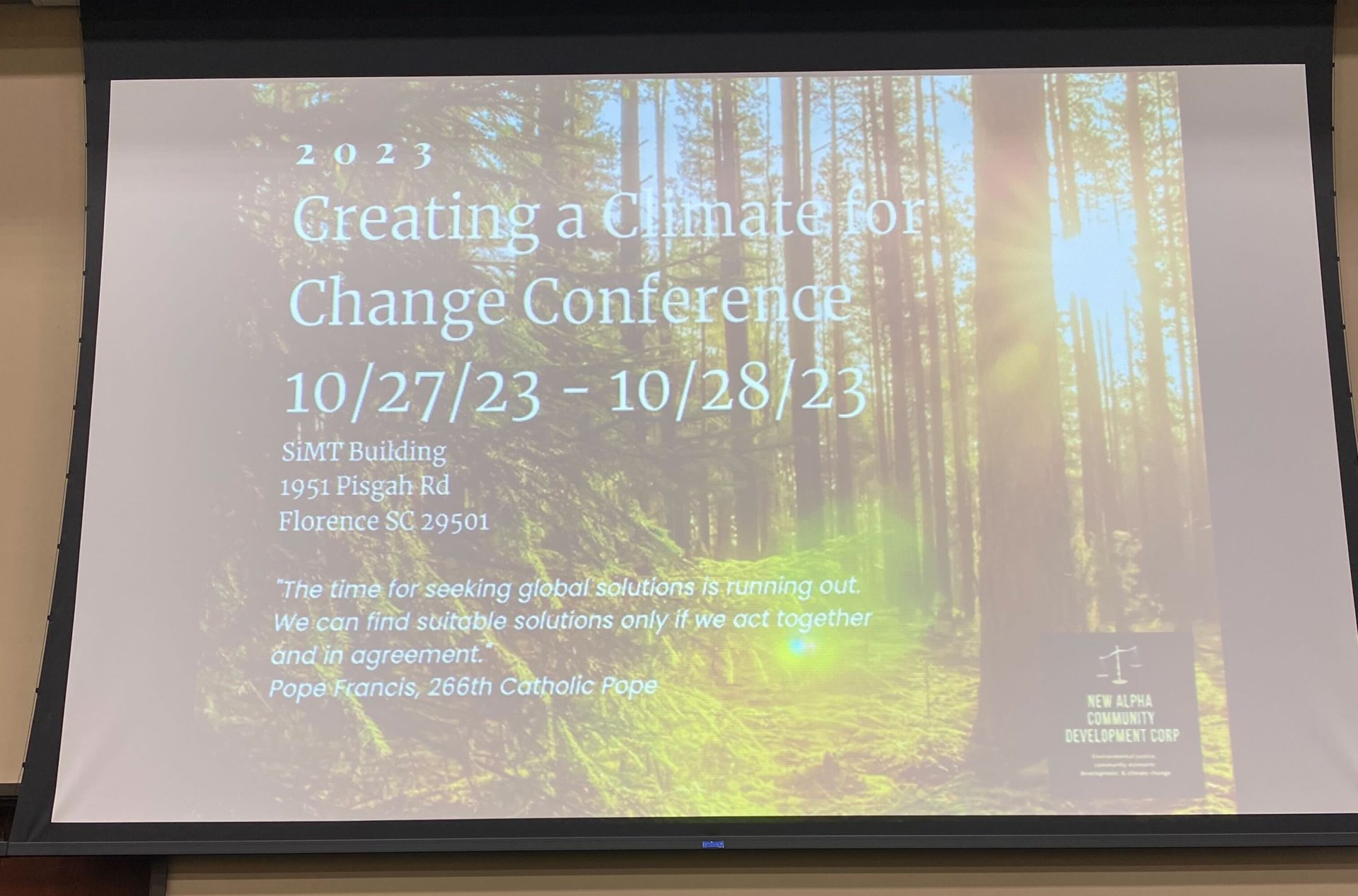At the end of last year, I traveled to Florence, South Carolina, to attend the Creating a Climate for Change conference. Hosted annually by the New Alpha Community Development Corporation and the Whitney M. Slater Foundation, the event is a dynamic forum for learning, networking, and envisioning a sustainable future for communities within and beyond South Carolina. This event, led by Reverand Leo Woodbury, showcased the innovation happening in various areas of environmental and climate justice issues and highlighted opportunities for cross-sectoral collaboration.
Dr. Jalone White Newsom, Senior Director for Environmental Justice at the White House’s Council on Environmental Quality, shared insights into the office’s efforts to advance environmental justice policy priorities. She emphasized the importance of centering the voices and lived experiences of frontline Environmental Justice (EJ) communities. Other organizations, such as the Gulagechee Chamber of Commerce, Dogwood Alliance, and Lowcountry Alliance for Model Communities, detailed their work on habitat protection, local green job development, and economic and housing improvements for frontline communities.
I had the privilege of participating in a panel titled “Networking for Success, Building Collaborations,” which delved into the importance of community building and fostering cross-sectoral connections. Joining me on the panel were representatives from the National Wildlife Federation, Southeast Climate & Energy Network, T.E.J.A.S, and Clemson University. This discussion underscored the reality that meaningful change occurs through collective effort. Given the vastness of the environmental justice landscape and its intersecting issue areas, collaboration is crucial in generating diverse ideas and solutions.
Reflecting on the conference, I’ve contemplated integrating these lessons into my Senior Manager of Education and Communications role. My key takeaway is that progress hinges on actively engaging, centering, and supporting the communities most affected by environmental injustices.

Environmental justice is a collective endeavor that transcends individual departments, organizations, or persons. Dr. Mustafa Santiago Ali aptly stated that systems not built for us cannot save us; instead, we must transform these systems to favor those most impacted by injustice. At Just Solutions, we are committed to this transformative approach. As we enter 2024, my goal is to continue fostering cross-sectoral collaboration, providing innovative spaces for idea testing, and amplifying solutions that align with our collective aspirations. I look forward to supporting the resilience and innovation of southern environmental justice leaders in their efforts to protect the environment, climate, and communities from extractive practices and systems. In the words of W.E.B. Du Bois, “As the South goes, so goes the nation.”
